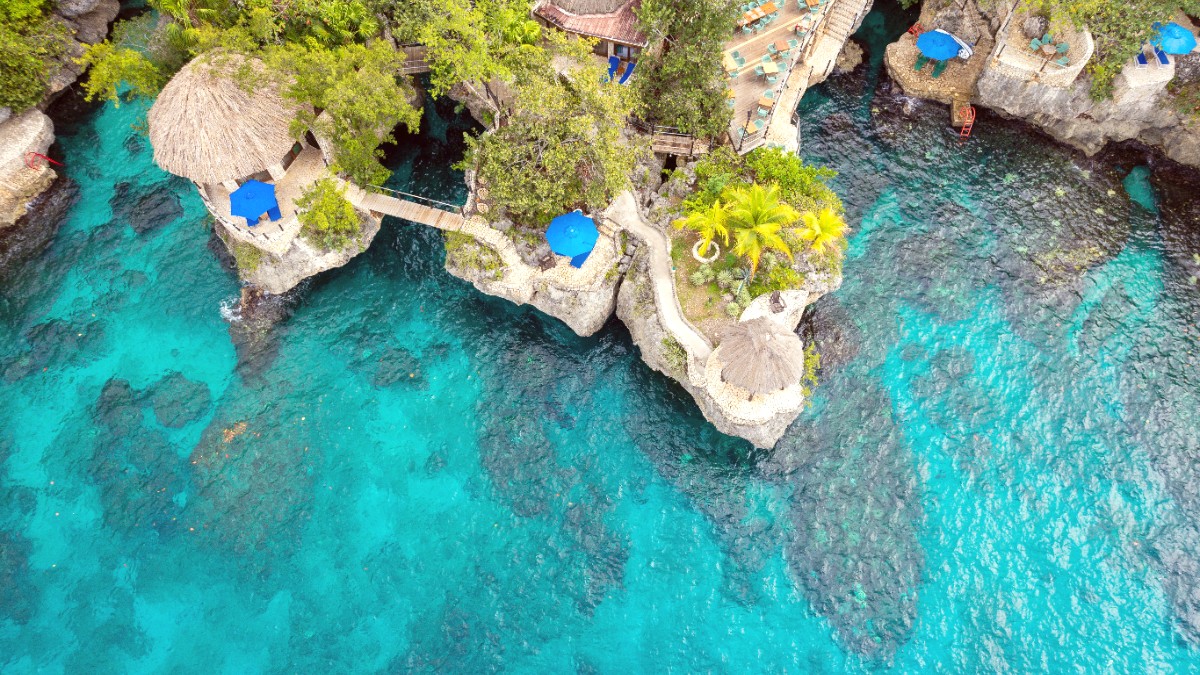
Jamaica
Jamaica has two rainy seasons. The first runs from May to June. The second occurs from September to November. During these times, you can expect short, heavy showers. These often happen in the late afternoon. After the rain, the sun usually returns quickly. The driest months are from December to April. This period contains the least rain and consistent sunshine.
The official Atlantic hurricane season runs from June 1 to November 30. The highest risk occurs from August to October. Direct hits on Montego Bay are rare. However, tropical storms can bring heavy rains and strong winds. Travelers visiting during this period consider travel insurance.
Temperatures are consistently warm and rarely reach extreme highs or lows. The heat index can feel higher due to the humidity. Stay hydrated and use sun protection. Reggae Sumfest occurs in July. This falls within the low season but draws large crowds.
For beach and water sports, visit from December to April for calm seas and abundant sunshine. Hiking and exploring are pleasant from January to March, with drier trails and more comfortable temperatures. Golf can be enjoyed year-round, but conditions are most pleasant during the dry season.
Visa requirements are based on your nationality. Most travelers from major countries enjoy visa-free entry for tourism. United States, Canadian, United Kingdom, Schengen Area (EU), and Australian citizens need no visa for stays up to 90 days for tourism.
When you arrive, certain documents are required: a passport valid for your intended stay, a return or onward ticket, and accommodation details. You might also show proof of sufficient funds. An Immigration/Customs Declaration Form needs completion upon arrival.
Valid for period of stay; 6 months validity beyond departure is recommended.
Proof of onward travel generally required.
May be requested to show financial capacity for stay.
Address of intended stay or hotel booking confirmation.
Yellow Fever certificate if arriving from risk countries (age 1+).
The local currency is the Jamaican Dollar (JMD). US Dollars (USD) are widely accepted at major tourist establishments, resorts, and larger shops. However, change will be in JMD. Exchange currency at cambios, banks, or official exchange booths at the airport. ATMs are widely available in Montego Bay. You can withdraw JMD from them.
Budget hostel/guesthouse: USD 20-40. Mid-range hotel: USD 70-150. All-inclusive resort: USD 150-500+ (per person). Street Food/Local Patty: USD 2-5. Local Eatery: USD 8-15. Mid-range Restaurant: USD 20-40. Fine Dining: USD 50+.
Route Taxi (short): USD 1-3. Private Taxi (short): USD 10-25. Airport Transfer: USD 20-40. Knutsford Express: USD 15-20. Car Rental (per day): USD 40-80+. Doctor's Cave Beach: USD 8-10. Rose Hall Great House: USD 20-30. River Rafting: USD 70-80. Dunn's River Falls: USD 25 (entrance only).
Prioritize your health and safety when you plan a trip to Montego Bay. Preparation supports a worry-free visit.
Jamaica has a high crime rate, specifically in certain urban areas. Montego Bay is a major tourist destination, and security is present. Visitors exercise caution. Avoid inner-city areas of Montego Bay (e.g., parts of downtown, Norwood, Flankers, Glendevon), especially after dark. Tourists generally do not frequent these areas. The "Hip Strip" (Gloucester Avenue), resort areas (Rose Hall, Ironshore), and major attractions are generally well-patrolled and safer. However, petty crime (pickpocketing, bag snatching) can occur.
Avoid walking alone at night. Do not display large amounts of cash or expensive jewelry. Be aware of your surroundings. Use licensed taxis or hotel-recommended transport. Decline unsolicited offers for services or tours from unregistered individuals.
Natural Disaster Risks: Hurricanes (June 1 to November 30), monitor local weather reports. Earthquakes (minor tremors occur occasionally, significant earthquakes are rare).
Travel insurance is highly recommended. A comprehensive policy covers medical emergencies, evacuation, trip cancellation, lost luggage, and personal liability.
Look for policies that cover your planned activities (water sports, adventure tours).
Without insurance, unexpected events can lead to high costs.
Keep a list of important local contacts, including your embassy or consulate.
U.S. Embassy Kingston: +1 876-702-6000.
Relying solely on memory in an emergency is not advisable.
In an emergency, dial the relevant number. Provide clear location details and the nature of the emergency.
Contact your travel insurance provider immediately for medical or evacuation assistance.
Do not delay seeking assistance in critical situations.
| Service | Number | Notes |
|---|---|---|
| Police | 119 | For criminal incidents. |
| Ambulance/Fire | 110 | Medical emergencies, fires. |
| Hospiten Montego Bay | +1 876-618-4721 | Private Hospital. |